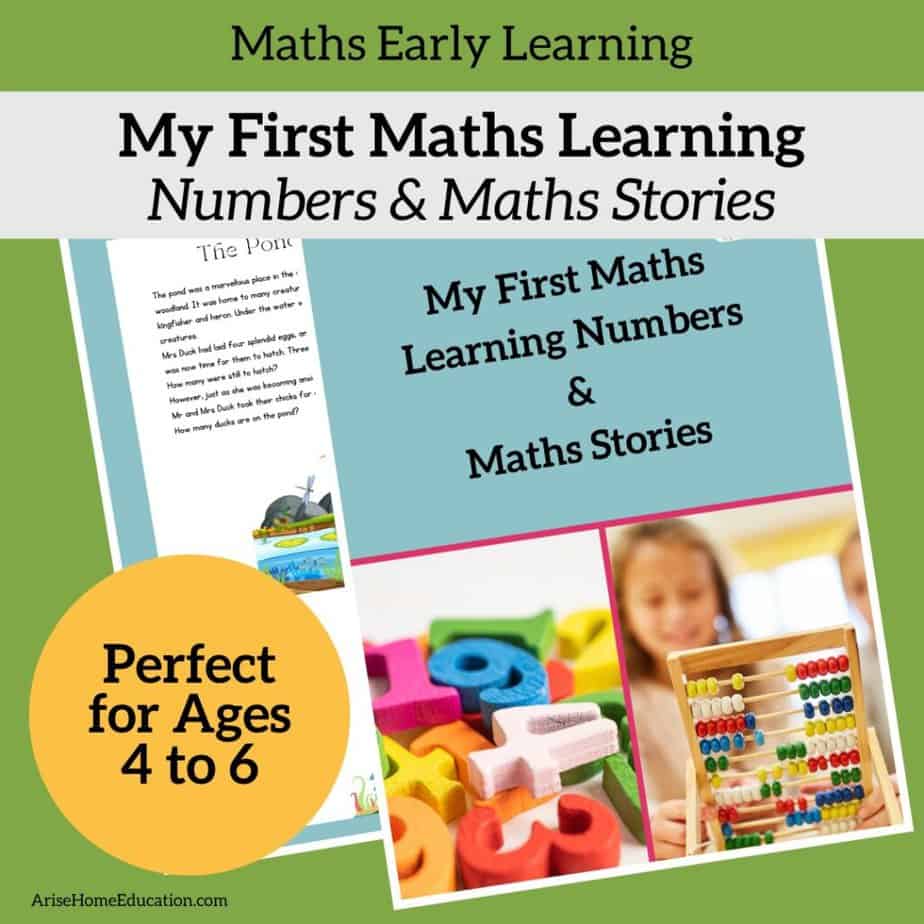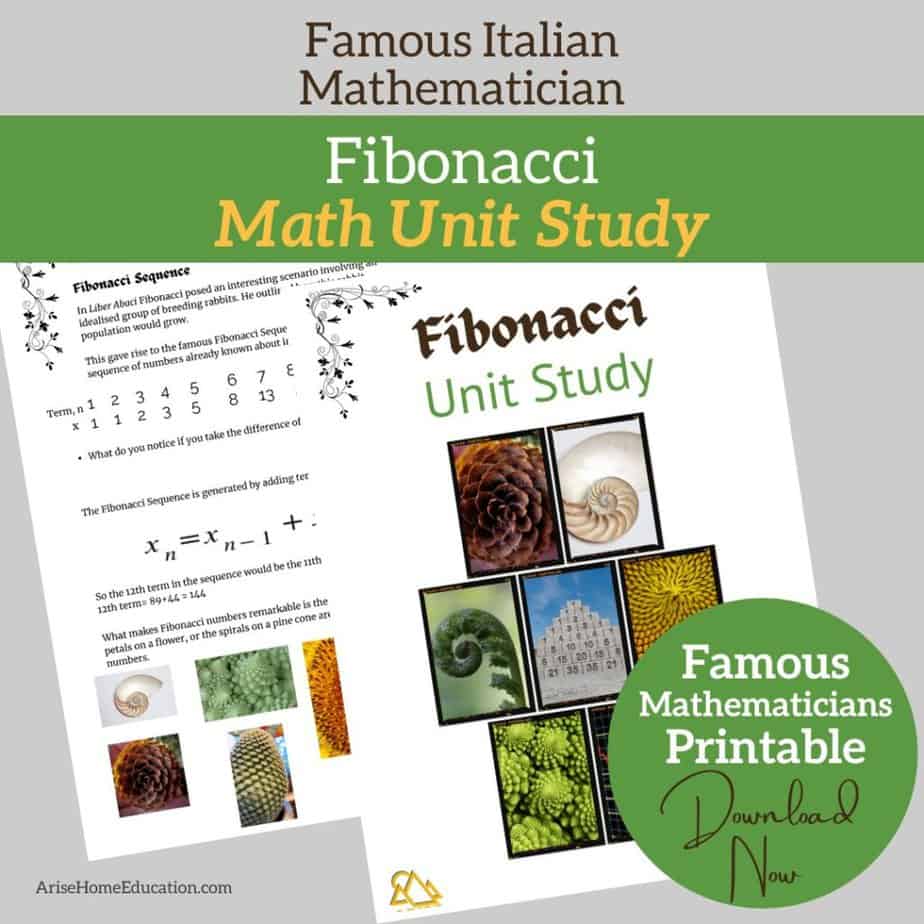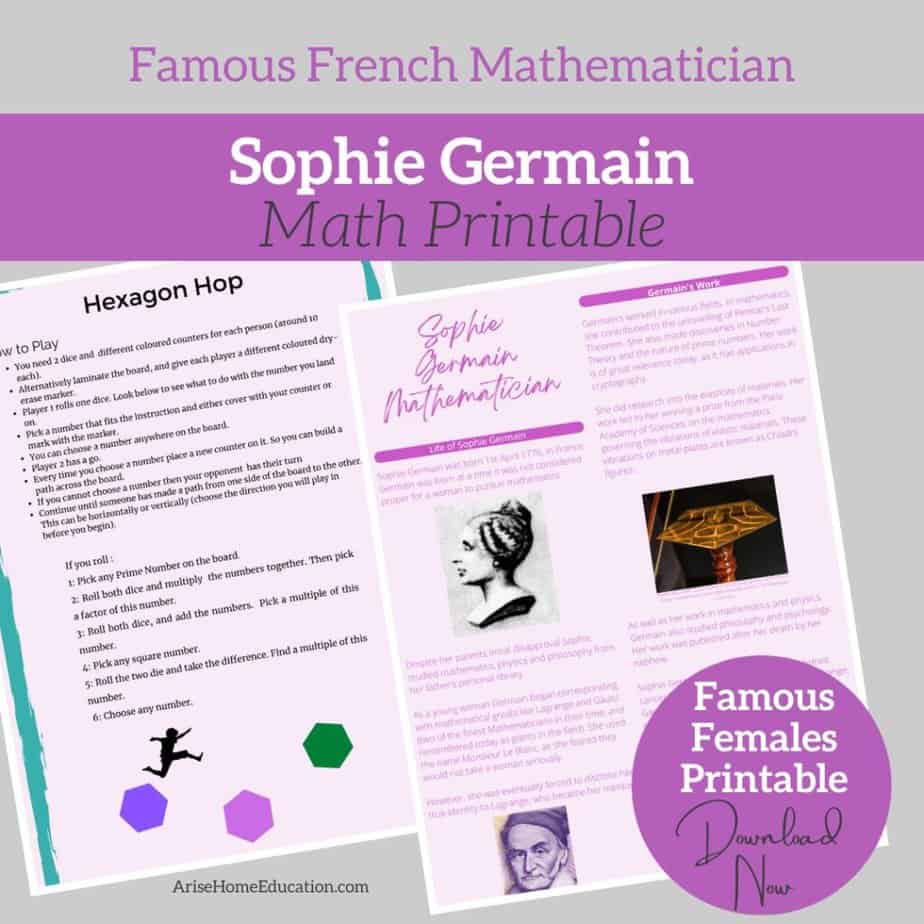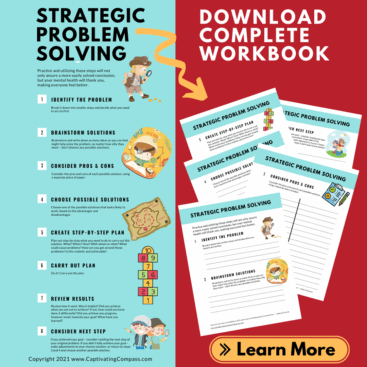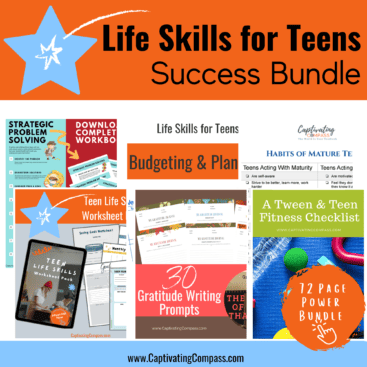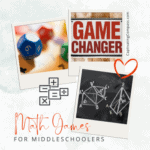
Are you feeling overwhelmed with teaching math to your homeschool student? Don’t worry – these math strategies will make it easier for your child to learn and will help them excel at math. With these tips, you can empower your child to tackle mathematical questions with confidence and success. Try out these math strategies for success by asking your kids mathematical questions. Read on to find out the best math questions to ask your homeschoolers
Table of Contents
Four Types of Questions to Improve Mathematical Thinking
Math strategies are essential to any student’s learning journey, and they can be especially beneficial when it comes to homeschooling. By incorporating four types of questions into your teaching plan, you can help your students practice their problem-solving and critical-thinking skills. This can enhance math understanding and lead to greater success in math for all ages.
Creative Thinking Questions
The first type of mathematical question to consider is creative thinking questions that involve everyday situations or people in a creative manner. Such questions ask students to apply mathematics principles in real-life situations. These questions force kids to think outside the box by using creative applications of mathematics based on the given situation or scenario provided.
Basic Computation Questions
The second type of question involves basic computation such as adding, subtracting, multiplying, dividing, or even finding a square root. These questions are more straightforward and provide a great foundation for more complex mathematical problems down the road.
Math Riddles
The third type is math riddles which require students to think critically and solve problems intuitively. These challenge problem-solving skills while having fun at the same time. They are entertaining yet powerful tools for learning mathematics concepts eloquently through playful exploration and interaction with numbers.
Open-ended Questions
Finally, there’s the fourth category which consists of open-ended questions that encourage conversation around the problem without necessarily leading to a specific correct answer. Through these sorts of discussions and comparing various methods or approaches to solving a given problem–students can understand abstract concepts better and become adept team players in solving everyday problems that require logical reasoning with precision and accuracy over mere guesswork or intuition alone.
Incorporating these four types of mathematics questions into your homeschool curriculum will give your children an edge in developing their problem-solving skills as well as enhancing their mathematical knowledge base over time.
When you are helping your homeschooled child with math, instead of doing the answers for them, it can help to ask the right questions that will stimulate mathematical thinking so that they can work the problems out themselves. This requires patience and time to accomplish, but it is very effective to help students learn to solve problems themselves – even when they aren’t sure at first how to tackle the problem.
Mathematical Questions For Kids: Open-Ended Questions
Asking open-ended questions about math can be an excellent way to help kids develop math skills. Questions like this allow children to explore natural number patterns, work toward their own solutions, and experiment with math models in order to find solutions to hard math problems. These questions may also be used as teaching tools or review activities, or as part of a mathematical puzzle.
When asking open-ended math questions, it’s often helpful to provide a starting point or structure by offering hints related to the easy math questions and/or giving kids a few examples they can use as stepping stones. The focus should remain on the mathematics; not just on finding correct answers. This way, kids are able to dig deeper and uncover better ways of understanding how and why Math works as it does.
This approach is especially useful for middle schoolers who may have mastered the basics but still need practice with junior high and high school-level Math. As such, open-ended questions can become greater opportunities for parents and teachers alike because they provide children with more than one answer path rather than a single “right” answer. This helps build on existing knowledge while honing important problem-solving skills in dynamic ways.
When trying to work out a problem and your child is stuck, ask these types of questions to help them recall when they practiced this problem before. By doing this, you automatically show them that you have confidence in them to figure it out.
Ask questions like “Does this remind you of anything?” and, “What happens if you organize the problem differently?”. Or, something like, “In what ways can these be sorted?” This will help give the student a starting point for figuring it out.
Mathematical Questions For Kids: Strategy-Focused Questions
Asking strategy-focused mathematical questions for kids is a great way to start learning about the basic principles of mathematics. When creating questions, it’s important to provide simple brain teasers that ask students to apply their knowledge of math principles. Introduce word problems that use whole numbers, two-digit numbers, fractions, and decimals, as well as problems related to time, money, and other everyday concepts. Consider also asking questions involving complex math topics such as geometry, algebra, and probability.
In addition to asking questions related solely to math concepts and calculations, it’s also beneficial for kids to learn how different equations work together in order to solve problems or create larger solutions from smaller parts. Strategies might include
- using addition or subtraction within a problem
- multiplying two-digit numbers
- solving for unknowns in equations
- understanding how different powers influence the outcome between two values, or
- exploring the connection between words and numbers such as when working with roman numerals.
Aside from helping children master their mathematical skills through questions and answers, there are additional strategies like reading stories aloud that can aid in the process of learning mathematical strategies better. Taking breaks throughout lessons will help keep kids engaged and interested while studying difficult topics too. Lastly, having accessible reference material like books or digital materials can be handy when stuck on certain problem areas during a lesson session.
These questions will flip on the math portion of your child’s brain and yours. Questions about strategy and how to tackle a problem can help lead to solving it.
For example, “What part of this problem is the same?” “Are there more examples in the book or online that you can use?” “What about any patterns; do you see any patterns?” “What do you think the next step should be?”

Mathematical Questions For Kids: Solution-Focused Questions
When it comes to teaching math to young children, it is important to ask solution-focused questions that encourage creative problem-solving skills. While traditional math quizzes and puzzles are great ways to reinforce foundational math concepts such as addition, subtraction, multiplication and division, many pupils feel overwhelmed by the sheer amount of material they have to digest during a single learning session.
Engage & Encourage
The best way to engage learners is by asking questions about situations that happen in their lives on a daily basis. For instance, rather than asking questions about the Fibonacci sequence, start with something easier such as ” Do you see any patterns in the shape of some items in the produce section?”.
Or “what is the price of the items you picked up at the grocery store” or “how could you use what you learned today when you go shopping?”. These types of questions make learning more meaningful and students can easily find practical applications for what they’ve learned in class.
Encouraging children to use math strategies in everyday life, makes problems easier to solve and helps them become more comfortable with solving unknowns. It also gives them confidence in their ability to answer challenging math trivia questions when they come up. So the next time you ask a mathematical question of your kids, make sure it’s solution-focused and geared toward helping them think creatively.
These questions will help the student analyze what they learned once they have a solution to the problem. Solutions may be right or wrong to have this conversation. If they are wrong, you can ask the right questions to lead them to a lightbulb moment of realizing it’s wrong and doing it right.
Ask questions like, “What did you discover?” and “Why did you do the problem this way?” “Are you confident your solution is correct? Why?” Answering these questions will help build confidence in the student’s ability to get the problems right and explain how they did it.
Mathematical Questions For Kids: Sharing and Comparing Questions
Asking sharing and comparing questions is essential for helping children understand mathematical concepts and developing their analytical skills. Asking open-ended questions encourages kids to think creatively about different topics and can help develop problem-solving skills. Questions that involve sharing and comparing can be a great starting point for math conversations with your child.
When asking sharing and comparing questions, focus on concept building rather than narrowing in on the right answer. Discussing processes like mental math can help kids understand how to approach a certain task, even if they don’t end up arriving at the correct answer on their first try. This strategy helps foster a growth mindset in which kids understand that learning doesn’t always come easy, but difficult tasks can still be accomplished with practice and perseverance.
Include Hands-on Activities
Asking hands-on questions also helps engage children in the material more easily, such as asking what the next prime number is after a given number or finding the missing number in two sequences (6-9-_). Celebrating special holidays such as Pi Day (March 14th) is also a great way of getting kids involved as well – start by discussing the value of pi (3.14), then move into applying it to more creative activities such as baking pies or drawing circles with different diameters!
Sharing and comparing questions have many great benefits when used correctly – from encouraging curiosity to developing analytical thinking, these strategies will keep kids engaged while learning mathematical concepts at home successfully!
Ask your child to compare their answer and the way they did it to another similar problem and solution. And as far as the actual problem goes, ask them why (and how) someone might get a different solution than they did. Maybe there are other possibilities. You may want to ask if this problem brought up new questions for them as they compared the problems.
Strategic Questions for Mathematical thinking
When it comes to helping kids build mathematical skills, many parents look for creative ways of incorporating math into their homeschool curriculum. To ensure that your child develops the necessary logical skills needed to solve math problems, it is important to include strategic questions and activities in your children’s learning process. These questions will encourage them to think about the concept behind each problem in order to come up with a logical solution.
One of the best ways to sharpen your children’s mathematical thinking is by introducing them to place value and decimal point concepts. Familiarising them with these two patterns during their elementary school years can help them tackle other mathematics problems later on in life, as they will be able to better understand the relationships between numbers.
Logic puzzles and strategy games with a range of easy and difficult questions can also be used for great practice in mathematics. Having a selection of these questions at your fingertips will provide your child with quality material anytime they are stuck or need extra help practicing math concepts.
Strategic problem-solving practice
Providing a wide range of different questions and activities related to open-ended reasoning is essential when teaching kids basic math skills. Through practice, they can hone their ability to use logic correctly and become more adept at solving complex mathematical problems in an efficient manner. If you are looking for creative ways of helping your child gain mathematical skills through strategic questioning and thinking, then use this guide as reference so that you can begin integrating effective methods into your home school curriculum today!
Asking strategic questions to stimulate mathematical thinking is a tremendous skill for those in a homeschool environment to develop. Learning when to step back and ask the right questions that stimulate the right way of thinking about a problem so that the child can find the solution on their own is a skill we can continually improve. Once your child starts learning to deal with and find solutions by asking the right questions, there isn’t any problem they cannot eventually solve. Strategic problem-solving soon becomes a natural approach to math and life in general.
Think your child needs a Math tutor?
Does Your Child Need a Math Tutor? Perhaps your student needs tips to de-stress test-taking Don’t wait! Read about the 3 signs your child may need a math tutor. You CAN build confidence and math success in your homeschool!
Share the teaching load with love online Math classes for your homeschool students.

You may also enjoy
- Math Games for Middle School: Online Math & Fun Homeschool Hits
- Study Skills Worksheets For High School
- The Best Online Homeschool Planner
- Personal Finance for Homeschoolers
- Struggling with Latin? Struggle No More!!
- Voyage Life Skills for Success – Help Your Teens Thrive
